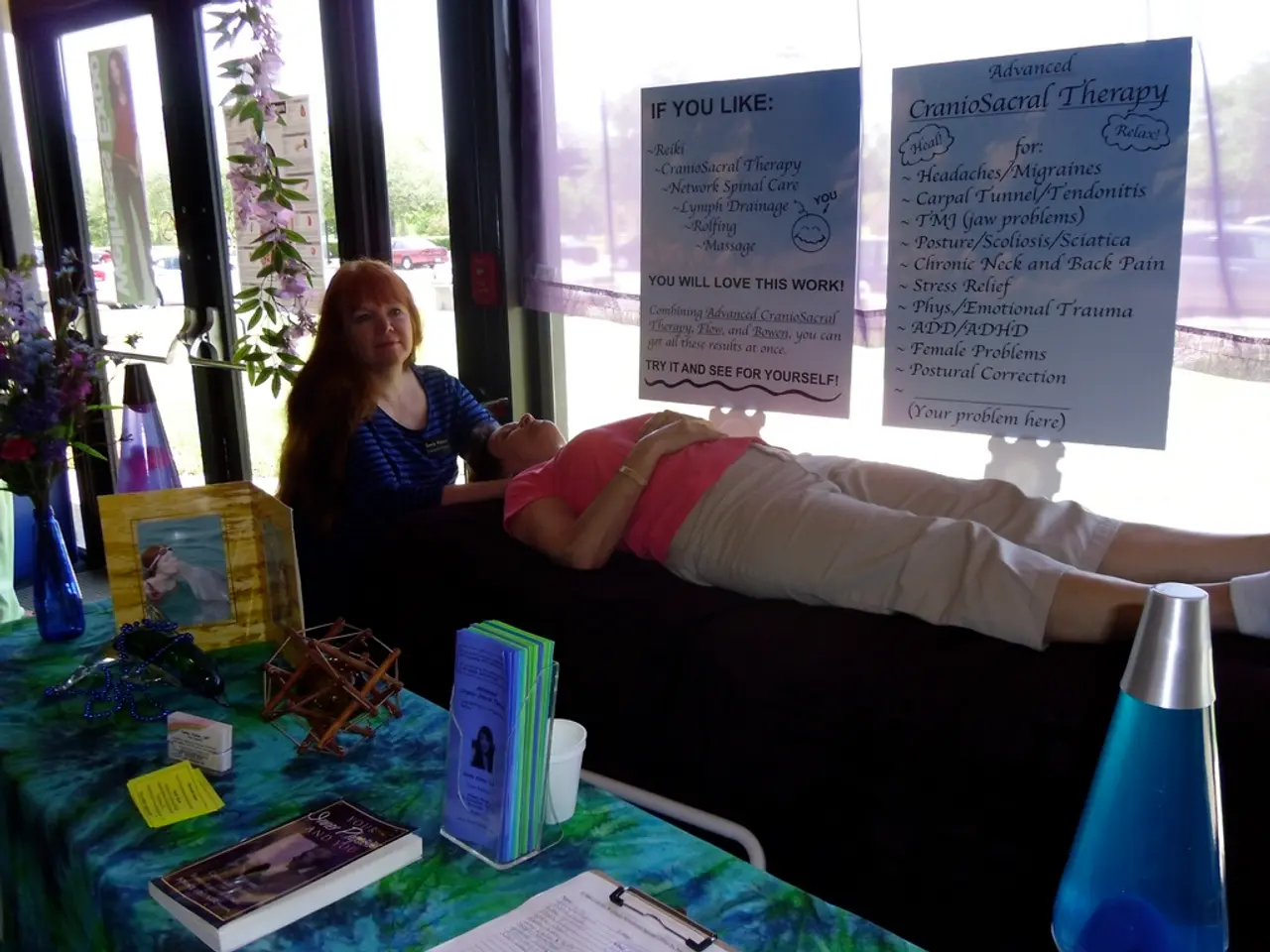Placebo Effect Explained: Understanding the Influence of Belief on Medical Outcomes
In the realm of medical research, a fascinating phenomenon known as the placebo effect plays a significant role. This effect, which arises from a complex interplay of expectation, prior conditioning, emotional state, social context, and cognitive factors, influences how patients perceive and respond to treatment, even when the treatment is inert.
Key psychological contributors to the placebo effect include:
- Expectancy: Positive expectations about a treatment can alter perception of symptoms, especially pain and emotional distress, by modulating attention and cognitive appraisal of sensations.
- Conditioning and prior experience: Previous positive experiences with treatments or healthcare rituals can reinforce placebo responses through learned associations between medical interventions and symptom relief.
- Mood and emotional state: Psychological factors such as anxiety reduction and improved mood can enhance placebo effects by reducing suffering, even if the underlying physical symptoms remain unchanged.
- Social and contextual influences: The patient-provider relationship, social support, and the overall environment can enhance placebo effects by increasing trust, reassurance, and perceived care.
- Resilience and mindfulness: Psychological resilience and cultivated mindfulness may mediate placebo responsiveness, for example, by improving attention control or emotion regulation mechanisms impacting symptom experiences.
In clinical and experimental settings, these psychological factors often interact. For instance, enhanced expectation through verbal suggestion or conditioning can change attention allocation and reduce symptom focus, leading to perceived improvement. The placebo effect tends to be more pronounced in subjective outcomes like pain and mental health symptoms rather than objective physiological changes.
The placebo effect can be observed in a variety of conditions, including chronic pain, nausea, sleep conditions, depression, and mood disorders. In some cases, up to 50% of people may feel better even if a placebo has no active ingredients. Conversely, a nocebo effect can occur, causing negative outcomes, if a person expects a negative outcome while taking a placebo.
Interestingly, the mind can also influence side effects occurring while taking a placebo. For example, if told a placebo is a stimulant, a person's pulse rate can increase, blood pressure may rise, and reaction times might be enhanced. This phenomenon has been observed by Dr. Allan and other researchers.
Moreover, unregulated CBD products can potentially induce a placebo effect, causing some people to feel better. This observation also comes from Dr. Allan's research. In a double-blind study, one group of patients may be given a placebo, while another is given the actual medication being tested. In such studies, the effects of the medication and placebos are then compared to determine the effectiveness of the medication itself.
Intriguingly, the brain may release hormones in response to certain behaviors, such as taking a placebo and being told it will help relax and sleep. However, it's important to note that there are no known side effects to taking a placebo.
An interesting example of the placebo effect can be found in a migraine treatment study, where those given a placebo reported similar relief as those given the actual brand-name drug. This demonstrates the profound impact of the mind in healing during times of stress and duress.
In conclusion, the placebo effect is a fascinating aspect of medical research, highlighting the powerful role of the mind in our perception and response to treatment. By understanding the factors contributing to the placebo effect, we can better appreciate the complexities of human health and the potential for psychological interventions in healthcare.
[1] Benedetti, F. (2009). The placebo effect: a neurological perspective. Nature Reviews Neuroscience, 10(10), 743-754. [2] Wager, T. D., Atlas, L. Y., & Rilling, J. K. (2004). Neural mechanisms of expectation and placebo analgesia. Nature Neuroscience, 7(11), 1247-1253. [3] Price, D. D., & Finniss, D. G. (2010). Placebo effects in pain: a systematic review and meta-analysis of randomised, controlled trials. The Lancet, 375(9729), 1609-1619. [4] Buhle, S. M., & Wager, T. D. (2015). Mindfulness meditation and placebo analgesia: a systematic review and meta-analysis. Journal of Pain, 16(8), 758-767. [5] Benedetti, F., Miller, A. H., & Robert, M. (2018). The placebo effect: a new neurobiological model. Trends in Pharmacological Sciences, 39(12), 899-910.
- The placebo effect, strong in mental health symptoms and subjective outcomes like pain, is heavily influenced by factors such as expectation, mood, social context, and prior conditioning, as seen in research by Benedetti, Wager, Price, Finniss, Buhle, and Wager.
- Enhanced expectation and positive mood, key contributors to the placebo effect, can contribute to perceived improvement even in the absence of active ingredients, as demonstrated in studies like the migraine treatment study, where placebo and brand-name drug groups reported similar relief.




